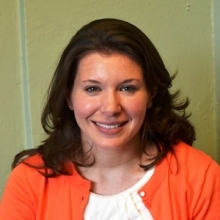Oregon’s QRIS - Using Data to Strengthen Impact
Posted on July 21, 2015
0 comments 2086 Views
 Quality
Rating and Improvement Systems (QRIS) exist in some form or phase of
development in 49 states across the country. The function of each QRIS is to
set basic standards for child care programs in the state, and to offer supports
and resources to help those programs reach and exceed those standards.
Quality
Rating and Improvement Systems (QRIS) exist in some form or phase of
development in 49 states across the country. The function of each QRIS is to
set basic standards for child care programs in the state, and to offer supports
and resources to help those programs reach and exceed those standards.
How many children in child care in U.S.?
In a typical week during the spring of 2011 (the latest numbers available from the U.S. Census), 12.5 million, or 61 percent, of U.S. children under 5 years of age were in some type of regular child care arrangement – including with relatives and non-relatives.
Data collection essential
As the demand for quality child care increases across the country, the importance of collecting data also increases. Only through the collection and evaluation of reliable and objective data can any system ensure that its goals are being reached. And with QRIS, these important goals exist to give each and every child a solid foundation for a successful life.
Oregon’s QRIS has been collecting data through periodic surveys, data collection logs, and input sessions, and has used the results to fine-tune the system to support the programs and subsequently the families in the most effective and efficient ways.
TRI staff present at QRIS National Learning Network in Washington, D.C.


Pat Aldrich tells us how it all went
"The presentation took place during the last session of the day, from 4-5:30. There were about 30 people in the room, and all appeared to be engaged in the presentation - a nice surprise given that it was the last session after a long day.
"The workshop was a conglomeration of three presentations all with a through line about Technical Assistance. Sarah Friese started the presentation off, discussing the use of the INQUIRE Data Tool Kit, created by the INQUIRE Research Consortium. The Tool Kit was created to help practitioners collect data in a systematic unified way, so researchers could aggregate the data and perform meta-analyses about technical assistance across the country.
"Following Sarah, Sam Stephens from the National Center for Children in Poverty presented information on collecting technical assistance data about
coaching teachers in the classroom and the data elements needed to make any
generalizable conclusions about the effectiveness of coaching efforts.
Then came our turn
"Dana and I rounded out the presentation by discussing how Oregon’s QRIS has gone about collecting technical assistance data, and the various stops and starts in our data collection methods that have happened in the two and a half years since we started. We discussed lessons learned, the need to properly train the coaches, and the need for feedback to the field so they know their work is not wasted.
"The discussion with the audience was lively and fruitful with many members expressing their needs and concerns about how to collect the data, especially when the data is used for research on one hand and accountability on the other.
My take-away
"The information that Sarah Friese presented will definitely impact our next iteration of Technical Assistance logs so that the data will be useful to our research and those that are performing nation-wide analyses about early childhood trends."
Click here to see the slides from our part of the presentation.
Recent Blog Posts
Project Spotlight: Creating Supports for Survivors of Gender-Based Violence Jun 6, 2018
Project Spotlight: Investigating Executive Function Concerns in Infants and Toddlers May 23, 2018
Project Spotlight: Reaching Out to an Underserved Population May 9, 2018
Project Spotlight: Fighting Against Gender-Based Violence Mar 14, 2018
Project Spotlight: Increasing Diversity in Early Childhood Educators Feb 7, 2018